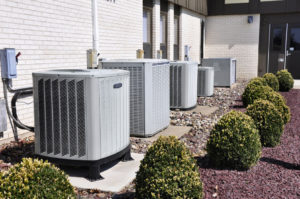When it comes to a business’s insurance needs, a small business owner should have a general liability insurance policy. This coverage will cover the business for damages, such as paying for a customer’s medical expenses when he slips and falls in the store. Most small business owners purchase a general liability insurance policy with product liability insurance. The latter protects the company from claims that arise from the sale of a product that causes a customer harm.
Product liability insurance
Most small businesses have no idea that product liability insurance is an important part of their overall insurance policy. A defective product lawsuit can have devastating consequences for a business. The same goes for restaurants and large manufacturers. These types of lawsuits can cost a business millions of dollars, and product liability insurance is crucial for small businesses. Product liability insurance protects you against these lawsuits and keeps you out of trouble. Whether you sell a product or not, product liability insurance protects your company from financial ruin.
When a consumer is injured by a defective product, the business owner is protected by the policy. Product liability insurance will cover the legal costs incurred when a consumer sues the company over the defect in the product. The policy also pays for any court costs, legal defense, and out-of-court settlements. Most small businesses purchase product liability insurance because they sell products directly to consumers. Some businesses, however, only sell services and do not offer a product.
Commercial property insurance
When you run a small business, you may be wondering if you need commercial property insurance. If so, you are not alone. There are many carriers that offer this coverage, and each one has its own strengths and weaknesses, along with various policy options and features. Comparing these different carriers can be a challenge, but there are a few tips you can use to help you find the best coverage at the lowest possible cost.
The first step in determining whether you need commercial property insurance is assessing the value of your physical assets. If you own only a few buildings, you can opt for a cheaper, basic form, or a more comprehensive policy. Larger businesses may need to add coverage for special causes of loss, like earthquakes or floods. Some insurers even offer bundled pricing, which saves you money. Choosing the right type of coverage is crucial for protecting your business, and you should consider your budget before purchasing a policy.
Workers’ compensation insurance
Most states require employers to purchase workers’ compensation insurance. Without [http://Workers’ compensation insurance]workers’ compensation insurance, employers are left in a bind in the event of a workplace injury. Without this coverage, employers are liable for paying lost wages, medical expenses, and other costs of an employee’s injuries. Unfortunately, most businesses do not have the capital to pay heavy claims from injured workers. Fortunately, workers’ compensation quotes are quick and easy to obtain, and they allow you to review your options before you purchase insurance.
In order to get a workers’ compensation insurance quote, you must know how many employees your company employs. To get an accurate estimate, you can use your gross annual payroll and state-specific rules to determine how much you will need. Once you have the amount needed, get an insurance quote from a licensed insurance agency specializing in small businesses. By comparing quotes from different companies, you can determine what kind of coverage is best for your needs and budget.
Errors and Omissions insurance
Errors and omissions insurance is an important part of your business’s overall protection against unforeseen financial disasters. While it is often overlooked by business owners, this policy protects your company from huge financial liabilities resulting from errors. Many professional services businesses need errors and omissions insurance. Financial industry professionals, for example, can suffer from expensive mistakes if they do not have the right coverage. Because of this, many regulatory bodies mandate E&O coverage for their members.
Errors and omissions insurance for small businesses is also called professional liability insurance. This type of insurance protects you financially in the event of a lawsuit arising out of mistakes or omissions made by your employees. Unlike Commercial General Liability insurance (CGL), this type of insurance protects you from losses that result from erroneous advice or services. It may also be called Professional Liability Insurance or Malpractice insurance.




